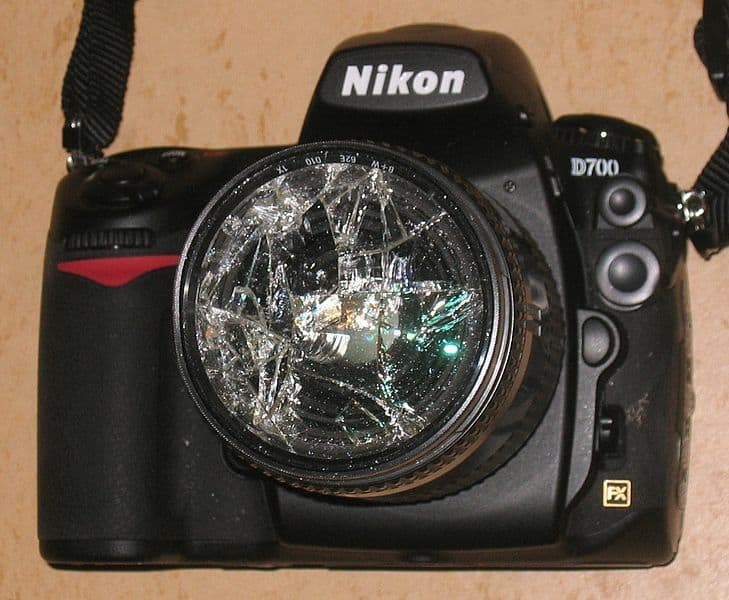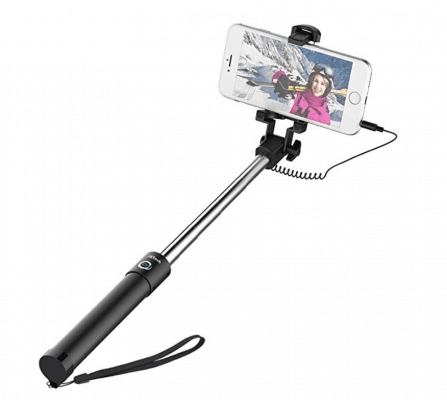The world can be a fantastic place to meet new people. But it can be a place for surprisingly creative travel scams as well. We do want to insist that you shouldn’t be scared or fearful of traveling (we hate all the fearmongering out there about travel, and don’t want to contribute to it).
At least 99% of the things you fear will never happen. So like with “dangerous” destinations, it’s not as bad as everyone wants to make it seem. These scams aren’t that common, and they’re not a life and death issue either.
But travel scams come in all forms and can happen even to the most experienced globetrotter, so we prepared some tips on how to avoid them so you can stay safe during your travels!
Not all travel scams are easy to spot, but having a general idea of how scammers take advantage of tourists can save you from some unnecessary headaches when you head out on that affordable flight that you found on Flytrippers’ cheap flight deals page.
And we’re not talking about “scams” like those related to common travel mistakes, which we’ll cover more in future articles. Those are more like errors that can end up being costly (buying car rental insurance, choosing to pay in your own currency abroad, etc.) but aren’t outright scams.
In this article, we’re talking about actual scams designed only to make money off of unsuspecting visitors. Feel free to comment to share the travel scams you’ve come across, we’d love to add them to the list.
So here’s how to avoid the most common travel scams (TL;DR—the bullet-point list of the 16 most common travel scams is at the bottom of this article).
1. Overpriced Taxi Rides
This one is a classic. Traditional taxis aren’t always the best idea for many reasons, but the most common one is getting overcharged, especially at the airport.
Taxi drivers can overcharge you by taking the longest route if there is a meter or just by telling you that the meter isn’t working and making up an astronomical price for the ride. This has got to be the most common scam out there.
How to avoid the overpriced taxi rides scam:
There is one solution that works every time: taking mass transit is the easiest way to avoid the scam and is almost always much cheaper, and often just as fast.
It’s no wonder many people believe in the myth that travel is expensive when they choose a $50 taxi instead of a $2 ticket.
Back to the scam.
So, if you want to take a taxi because you:
- insist on having the convenience of private transportation
- don’t want to travel more so don’t need to save money
- are in countries where it’s so cheap to get private transportation
- are traveling as a group and private transportation is cheaper
- are in an airport where there’s no mass transit
- are going somewhere where there’s no mass transit
In those cases, our first tip is to use Uber (or its local versions).
Uber is an incredible alternative to traditional taxis. Not only is it available almost everywhere now, but the prices are sure to be the real prices. No scam possible. For more details, I will have an upcoming article about why to use Uber instead of a taxi when traveling.
If you must take a traditional taxi, ALWAYS negotiate the price before getting in. Ideally, find a taxi with a working meter, but that’s not always possible.
We always recommend having an approximate idea of the fare—you can check out WikiTravel for this as part of your travel planning. The actual price is sometimes half the amount the taxi driver will have quoted you first!
If you haven’t bought your local SIM card at the airport to get mobile data for cheap and want to make sure they are not taking a longer route, download an offline map of the place you’re visiting beforehand.
Also: watch out for taxi drivers who drop your change “by accident” and then give you similarly looking, but less valuable coins or bills.
2. Closed Hotel Or Terrible Hotel
Speaking of taxi drivers—this is another one of their travel scams. While driving towards your hotel, they will tell you that your chosen hotel is terrible, overbooked, or closed, and offer to take you to another one.
Their “suggestion” will be several times more expensive, and they’ll most certainly receive a nice commission out of this transaction.
How to avoid the closed hotel scam:
First of all, don’t believe it until you see it. Always insist that the driver takes you to your hotel first. If it turns out that your hotel is closed or overbooked, take some time to find another solution on your own. It’s always better to rely on your own research than to trust strangers. Impulsive decisions are never a good idea in general, but particularly when traveling.
3. Rental Scam
Renting a car (or a motorbike) can sometimes be the least expensive and most practical way of getting around. Roadtripping in a foreign country is also a great way to explore the area and its nature.
However, the classic “you break it, you buy it” scam doesn’t seem to get old. Rental agencies can sometimes be very insistent on you paying for the alleged damage… even if there wasn’t any.
How to avoid the rental scam:
We’ll have a complete guide on car rentals—it’s such a misunderstood aspect of traveling.
In the meantime, the rule is simple: always book with major car rental companies. They have standards and are infinitely less likely to scam you compared to small, unknown, mom-and-pop, far-end-of-a-dark-alley, local car rental companies.
It’s not like with smaller online flight booking websites that people are scared to use because they don’t know them. Those are fine; your flight isn’t with them. It’s with the same airline on the exact same flight that you could book for much more on their own website… stop worrying (we’ll have a detailed article about this common misconception).
But the small car rental companies aren’t just a middle man that book you on a reputable major company: they are the service provider, unlike online flight booking websites. So avoid them.
If you absolutely must rent with a non-major company, do your research and read the online reviews of the rental company beforehand. You can ask someone at the place you’re staying to recommend the least bad local car rental company.
No matter where you rent, always make sure to inspect the state of the vehicle thoroughly and point out any concerns that you might have to the employees. I also recommend recording a video and taking as many pictures as possible (especially of the scratches and damaged parts) to have as evidence in case they claim damages to the vehicle.
And not just when leaving, but also when you return the car. To have proof that the car was fine. And don’t forget the interior: some will scam you by saying the interior needed to be thoroughly cleaned.
It might be a little extreme but even after dozens and dozens of car rentals (always with major companies, no exceptions), I’ve never had the slightest issue. Never paid a dollar more than the basic fare (well, except for speeding tickets on my Oman roadtrip, but that’s a whole other story).
But it’s kind of like with insurance—it’s free and avoids a lot of potential trouble.
Yes, insurance can be free if you avoid the main car rental scam. We talked about car rental insurance, but we will revamp that article and make it simpler to understand because we know insurance can be a very complex issue if you don’t know too much about it, so come back for that soon (or subscribe to our newsletter).
In short, make sure you decline the rental company’s costly Collision / Loss Damage Waiver and pay with a travel credit card that will better cover you and will cover you for free. There are so many other rental car scams, but we’ll have to post an entire article for the rest.
Lastly, avoid giving your passport or any ID as security for the vehicle.
4. Fake Officials
Fake cops asking for a bribe is a pretty universal scam that can happen to you anywhere in the world. It involves the fake cop asking to see your ID and then writing you a ticket for a made-up offense.
To get your documents back, they’ll ask you to pay the fine on the spot. They can take it even further and try scaring you with prison time.
How to avoid the fake officials scam:
Well, any official policeman can ask to see your ID. But, you should also always ask for their identification badge to make sure they’re not scammers.
Also, don’t hand your ID over to them—just show it. If they write you a fine and ask you to pay it on the spot, don’t do it. Instead, ask them to take you to the police station where you’ll be happy to pay the fine. Generally, at this point, they will leave you alone.
If it happens at the border or with real officials who want a bribe, decline firmly and if that fails, mention you will want a receipt, or you can even mention the anti-corruption hotline (most countries have one). If you’re patient, you should get out of it.
5. Bump And Grab
This scam is particularly common in the metro. Usually, it’s an organized group of thieves—some of them will bump into you to distract you, while the others will expertly slip their hands into your pockets or purse. In no time, your stolen valuables will be handed over to the next guy, and they’ll be gone before you know it.
These thieves might also quickly grab the purse of someone sitting or standing next to the metro door at the very last second and jump off just as the doors are closing.
How to avoid the bump and grab scam:
When you’re out exploring, you should always keep your valuables in different places. If you don’t want to make things easier for the thieves, don’t keep important documents and money in one place. Be mindful of any contact and check your pockets.
After going to 58 countries, it has only happened to me once and as soon as the guy touched me, I put my hand over my jeans pocket and noticed that my phone was gone. I grabbed it from his hands right away before he was gone, and I went the other way.
But other than that, no need to go crazy and think that you absolutely need a protective pouch or anything like that: I’ve never had any and never had anything stolen by being cautious (and also obviously making sure I avoid looking like a tourist as much as I can).
If you want to be super safe, yes, you could put your valuables in a cross-body purse with a zipper. Another idea is to invest in an anti-theft backpack—then you won’t have to worry about this scam at all.

6. Broken Camera/Phone
Imagine you’re at a popular tourist attraction, and a friendly-looking person approaches you and asks if you can take their picture. Seems pretty standard, right? Happens very often.
What could go wrong? When you try to take the photo, the camera doesn’t work. When they come back to take a look, they will fumble and “drop” it on the ground, where it will break into pieces. Their goal is to guilt-trip you into giving them money for the “repairs” or lift your wallet when you bend over to pick up the dropped object and are distracted.
How to avoid the broken camera scam:
If the camera is not working, it’s most likely already broken. Be careful when giving it back and make sure the person takes hold of it properly. Resist any accusations and don’t give them money for repairs. And, of course, keep an eye on your wallet.

7. Stolen Camera/Phone
The opposite scenario is a widespread scam as well. Imagine you’re visiting a busy tourist attraction, and a friendly-looking person approaches you and offers to take your picture for you. Your new friend could run off with your expensive phone/camera and disappear entirely.
A more common scam is that after taking your picture, they could try to charge you for the service. Even though they weren’t transparent about their intentions at first, they give it a try because it works with so many people.
How to avoid the stolen camera scam:
If you’re looking for someone to take a picture of you, don’t accept an out-of-the-blue offer from an unknown person.
Instead, take a few minutes to observe around you and ask someone who seems legitimate to take the picture and maybe offer to return the favor (or use a selfie-stick even if everyone seems to find those annoying).

8. The Beggar
A beggar, usually a young child, an elderly person, or a pregnant woman will approach you and try to guilt-trip you into giving them some money, something that happens very often. Everyone has their own opinion on this issue.
But sometimes it’s part of an elaborate scam. Scammers know that kids and pregnant women are hard to say no to, and they can take advantage of the situation to see where you keep your wallet. Later, the pickpocket will know where to strike.
How to avoid the beggar scam:
Once again, be very careful about where you keep your wallet. No matter the context, it’s best to be as subtle as possible when taking out your money or wallet in public. And try to remember that even people who look in need of help can have ill intentions.
9. Free Stuff
A friendly local offering a flower, bracelet, or anything else for free is a very common occurrence when you travel. Generally, people who are trying to force anything into your hands for free will most definitely try to charge you for it later.
Even if you refuse to take it, they will insist that you take a small free sample. If you then refuse to pay, they’ll start making a scene to make you feel uncomfortable.
How to avoid the free stuff scam:
Remember that someone you just met randomly in the street is probably motivated by money. It’s certainly cynical, but that assumption will protect you from paying for something you don’t need.
Don’t accept anything offered to you out of nowhere and you’ll be fine. Stand firm and refuse to pay for something you didn’t ask for, it’s really simple. Be polite, but be firm. If that fails, walk away.
10. Room Inspectors
This is a scam that can strip you of your most valuable items. It is extremely rare, but people dressed as the hotel staff can knock on your door for a room check. If you let them in, one of them will try to distract you, and the other(s) will look around and steal your most valuable and expensive items.
How to avoid the room inspector scam:
Don’t let anyone into your room unless you’re sure they’re hotel staff. In case they need to get into the room, real hotel staff will always have keys and could enter on their own anyway. If someone comes, make them wait outside by closing the door and always call the hotel reception to make sure the room check is not a scam.
10 Most Common Travel Scams Bullet-Point List
- Overpriced taxi rides
- Closed hotel or terrible hotel
- Rental scam
- Fake officials
- Bump and grab
- Broken camera/phone
- Stolen camera/phone
- The beggar
- Free stuff
- Room inspectors
Summary
Those are 10 of the most common travel scams, and the best way to avoid them is to at least be aware of them. By keeping your eye out for these and knowing the best response, we hope you can be pro travelers and have only positive memories after each trip.
What other travel scams have you encountered? Have you ever fallen for any of these most common scams? Is there something that still worries you about traveling that we can help you with? Let us know in the comments!
Want to see our current discounted plane tickets?
Click here to see our flight deals
Want more travel tips and inspiration?
Click here to see the blog homepage
You’ll probably enjoy this article:
How to Get to Any City in Europe at a Low Price
Help us spread the word about our flight deals and travel tips by sharing this article and most importantly bookmark Flytrippers so we can help you navigate the world of low-cost travel!
Cover image: random traveler (photo credit: Sweet Ice Cream Photography)
Advertiser Disclosure: Flytrippers receives a commission on links featured in this blog post. We appreciate if you use them, especially given it never costs you anything more to do so, and we thank you for supporting the site and making it possible for us to keep finding the best travel deals and content for you. In the interest of transparency, know that we will NEVER recommend a product or service we do not believe in or that we do not use ourselves, as our reputation and credibility is worth far more than any commission. This principle is an essential and non-negotiable part of all our partnerships: we will never give any third-party any control whatsoever on our content. For more information on our advertiser disclosure, click here.




